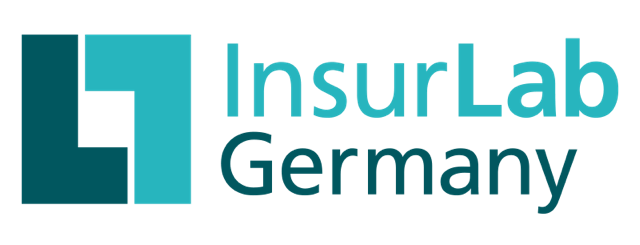In the following interview, our Managing Director Sebastian Pitzler talks about InsurLab Germany and the vision behind it. This interview was in the original at WiWo Gründer published on 01.08.2018.
Many members, many collaborations - too narrow legal regulations. In our new column, digital hubs report on their work. Today: What about insurance startups?
Wednesday is column day at WirtschaftsWoche Gründer. Starting today, representatives of the Digital Hub Initiative, which is spread across the country, will report regularly on the state of the startup ecosystem in their respective focus industries in a standardized questionnaire. To kick things off, Sebastian Pitzler, managing director of the supporting association behind the Insurtech Hub in Cologne.
The Insurtech Hub in Cologne has been active for about a year. What is already going better than expected in the ecosystem?
What is going really well for us is the development of our membership. We now have 58 member companies, making us Germany's largest industry initiative for networking startups and insurers. In our innovation workshops, we bring startups together with member companies under a specific theme, for example "Blockchain and Smart Contracts." The startups pitch to members to identify specific pilot projects. For example, we brought Berlin-based "Future of Voice," a non-insurtech startup focused on using voice assistants like Alexa, together with our member companies to improve digital customer communications. We also have an accelerator program, where we most recently connected the start-up "Kasko" with Zurich Germany. Here, a cooperation was concluded in just three days. This allows new insurance products to be developed much faster than if one side did it alone.
And what is going worse than hoped?
As I said, we are surprised at how much is going well. But where we really need to catch up is our start-up campus. We offer a co-working space and invite insurtech startups and digital entities from our member companies to work with us. Currently, we have a utilization of about 60%. We want to achieve even more there and, for example, make the whole thing more attractive and lively through strategic partnerships.
Why is this hub in this location of all places?
Cologne is a traditional location for insurance. With insurers such as Axa or Gothaer, for example, it has a long history when it comes to the subject. Our insurers are an important employer in the region. TH Köln and Universität zu Köln, which are among our founding members, are also leaders in the insurance context. Our members have a great interest in and the ideal conditions for successfully advancing the topics of digitization and insurance from this location. But not only the concentration, but also the network is very important for us: insurance covers all areas of life, from household contents to accident to pension provision. That's why cross-industry innovations, for example in the areas of smart homes and digital health, are particularly important for us.
And which place or region do you look upon with envy?
Envy is the wrong word, but you can certainly take a leaf out of some places' book, such as London with its fintech scene. I also think it's great what the Fintech Hub Berlin is doing with H:32, who have set a completely different benchmark again with their co-working space. FinLeap recognized the need for innovation and networking early on and is therefore already very established as a company builder. That's why they can already attract completely different cooperation partners. Another factor is Berlin's role as the tech capital of Europe. Over the years, an ecosystem has formed here that is developing a corresponding radiance. We are convinced that we can do the same for the insurance industry in Cologne.
Topic Regulation: What legal regulation would help the industry?
The EU GDPR was an important step to protect data and personal rights. But customer data is essential for insurance companies: New needs can be identified and new products developed on the basis of this data. As an industry, we must therefore be in a position not to develop a collection frenzy but to put data to a clear purpose - also on the basis of the GDPR. For an established insurance company with its own legal department, this is certainly still feasible, but for an insurtech start-up, this already represents a challenge. I would therefore like to see something like limited experimentation or test areas from the legal side, where start-ups can try things out in a protected space with companies, without data protection or other guidelines playing a direct role.
Keyword: cooperations: Are medium-sized companies and corporations more like friends or foes?
In my opinion, collaborations between startups and medium-sized companies or even established large corporations are one of the key success factors for innovation and digitization. By now, everyone is aware that cooperation and collaboration make for new models of success. Therefore: definitely friend. The corporations have discovered that they can no longer and no longer have to develop everything themselves.
What will be the next big thing in this subject area?
On the one hand, technologies such as artificial intelligence, the Internet of Things, or blockchain will open up new possibilities, for example for the calculation of insurance products or the handling of processes. There is a lot of potential here for optimizing existing processes, but also for genuine product and service innovations. In addition, insurance companies will evolve from pure cost reimbursers to active life companions by promoting prevention more strongly. One example is smart homes: connected devices can detect damage earlier or even prevent it. This means fewer losses for the customer and lower claims for the insurance company. This is a great opportunity for insurers: They no longer become active only when something has happened, but help prevent damage in everyday life. Such approaches are also conceivable in the area of digital health with apps and wearables, for example when illnesses can be detected earlier and actively counteracted. Here, the use of data plays a decisive role.
